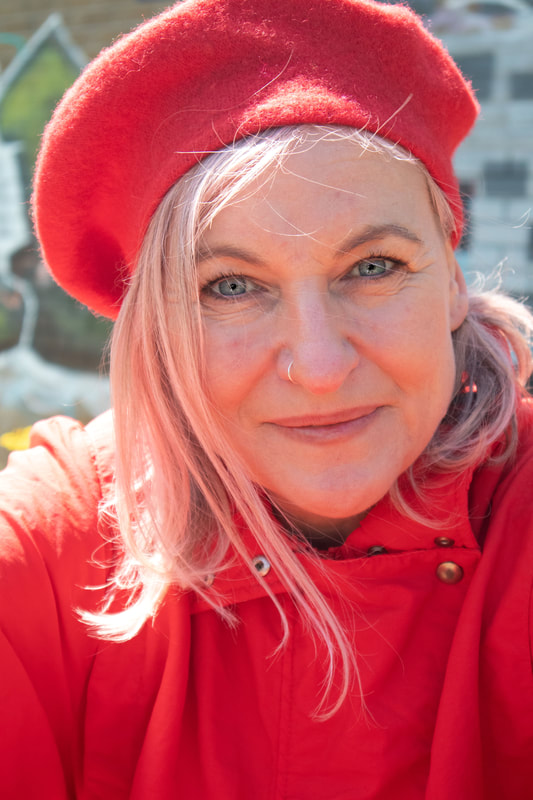|
We are the Clowns of the Rebellion! The commentators, the rebels, the soothsayers. A new resistance movement; the Rebel Clowns are a performance group that I set up in the Extinction Rebellion protests of 2019. But for a clown who says ‘yes’ to everything, how does a clown resist?
Clowning and protest was the focus of my Masters research exploring ‘Small Circus Acts of Resistance’. With the spotlight on the smallest act of all, the clown, I delved into the long history of clowning, politics and protest. Clowns are no strangers to the circles of power. Since we have been performing clowns have had their place in ancient sacred festivals, in medieval courts of kings and queens and with the people in the streets and in circuses. They have served a unique and important purpose, "to turn established protocols on their heads, and to provoke a new understanding of, and appreciation for, the human condition through a celebration of foible and a mockery of power."[1] For clowns co-opted into politics they occupy an ambiguous and mutable position, “at once critic, police, hero, enemy, representative of the people and a threat to the social order.”[2] This was the case with the Clandestine Rebel Insurgent Clown Army (CIRCA). A form of non-violent political activism, rebel clowning understood and utilised the unique power and position of the clown as a tactic against globalisation, war and other issues. The Clown Army arrived alongside protesters in 2003, dressed in flamboyant combinations of army fatigues, brightly coloured fake fur, stripey socks, colanders, carrying noisemakers, sex toys, glitter, bubbles, bouncy balls and whistles. The movement radically transformed public space and binary power structures of the non-violent direct action movement. Clowning allowed participants to explore authoritarianism through parody and ridicule. “Instead of resisting, the clown collaborates; instead of obeying and hating, the rebel clown mocks and slips away”.[3] Rebel Clowning provided another form of resistance; subverting and inverting the oppositional spaces of protest, of police and protester. It was also able to inject values often seen as distinct from the political realm: joy, pleasure, desire, diversity and horizontal power structures. In my Masters research I aimed to explore mechanisms of the clown that could shift the balance of power; to resist. I discovered, like CIRCA, that through parody the clown can highlight the hypocrisy and absurdity of authority and implicit rules that maintain the status quo. Through playing games, the clown can encourage participation and interactions with others, unlocking the subversive power of play within each individual. While a simple game of mirroring can offer spectators a moments of self-conscious awareness of their complicity in upholding rules that maintain the current systems of power and authority. Parody, participation and play offer effective tools of resistance for the clown. For the new generation of Rebel Clowns these mechanisms have been central to exploring important political, social and environmental issues of our time. Let loose on the streets of Bristol, the Rebel Clowns have created performances including bringing Black Fri(deity) to life to challenge the new religion of consumerism and capitalism. We have also created a playful healing space to help people deal with their grief...in all its stages, post Brexit and the Election in 2019. Working with resistance can offer interesting tools for the clown and for us. Where we feel resistance we and can feel our edges, and know ourselves and our boundaries. Physically, resistance can give us something solid to lean into or to rest on. We can also push against and find new pathways and possibilities. You can explore resistance in the following Clown Workouts: In ‘Playing with Resistance’ Holly guides you through an embodied exploration of resistance, asking what do we do when we don't want to play? https://www.youtube.com/watch?v=RK_tCGKFa70 In ‘Moving with Resistance’ Robyn offers an embodied experience of encountering different types of resistance in the air around us. https://www.facebook.com/robyn.hambrook.7/videos/10158580057213627/ Can clowning be used to flip a difficulty or some adversity into something amusing? Maggie Irving offers perhaps another solution to meeting resistance in this video ‘Flipping It’. https://www.youtube.com/watch?v=03HbZfTbFm0&feature=yo [1] Clowns by Ezra LeBank and David Bridel, London and New York: Routledge (2015) [2] Clown by Jon Davison J (2013) [3] ‘We disobey to love, rebel clowning for social justice’, Isabelle Fremeaux, and Hilary Ramsden, H. Leicester, UK: National of Adult Continuing Education (NIACE) (2007) |
AuthorCreative research into the meeting point of clowning and activism Archives
May 2024
Categories |
ABOUT ROBYN
Robyn is a Bristol-based director, teacher and performer. With over 20 years experience she is a passionate practitioner of clowning, physical theatre, circus and street arts. She has a MA in Circus Directing, a Diploma of Physical Theatre Practice and trained with a long line of inspiring teachers including Holly Stoppit, Peta Lily, Giovanni Fusetti, Bim Mason, Jon Davison, Zuma Puma, Lucy Hopkins and John Wright.
Over the past five years she has been exploring the meeting point of clowning and a deep desire to address the injustices in the world. This specialism has developed through her Masters Research ‘Small Circus Acts of Resistance’, on the streets and in protests with the Bristol Rebel Clowns and in research residencies with The Trickster Laboratory. Robyn’s Activist Clown research has led to collaborations with Jay Jordan (Laboratory of Insurrectionary Imagination, France), Clown Me In (Beirut), LM Bogad (US), Hilary Ramsden (Greece) and international Tricksters; ‘The Yes Men’ (US). During the pandemic in 2020, Robyn set up The Online Clown Academy with Holly Stoppit and developed a series of Zoom Clown Courses. Robyn’s research, started during her Masters, has been exploring the meeting point of clowning and activism, online, in the real world and with international collaborators. With this drive to explore political edges of her work she has also dived back into the world of the Bouffon; training with Jaime Mears, Bim Mason, Nathaniel Justiniano, Eric Davis, Tim Licata, Al Seed and the grand master Bouffon-himself; Philippe Gaulier. Keen to explore the intersection of clowning and politics, Robyn is driven to create collaborative, research spaces, testing and pushing the limits of the artform to create new knowledge and methodologies for her industry and strengthen partnerships for future work. Some of her most recent collaborations and teaching projects have included the Nomadic Rebel Clown Academy (5-day Activist Clown Training), The Laboratory of the Un-beautiful (Feminist Grotesque Bouffon Training for Womxn Theatre Makers) and the Clown Congress (annual gathering of clowns, activists & academics collectively exploring what it means to be a clown in this current era) |
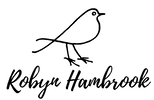
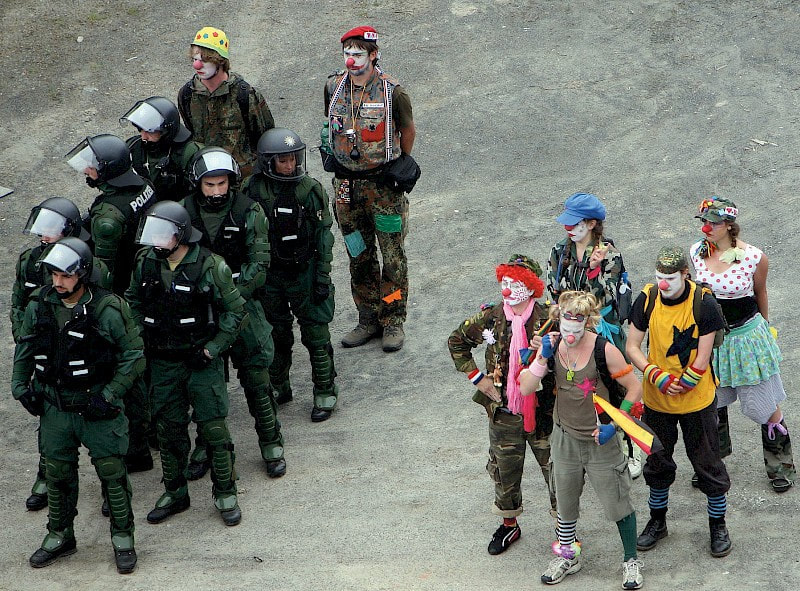
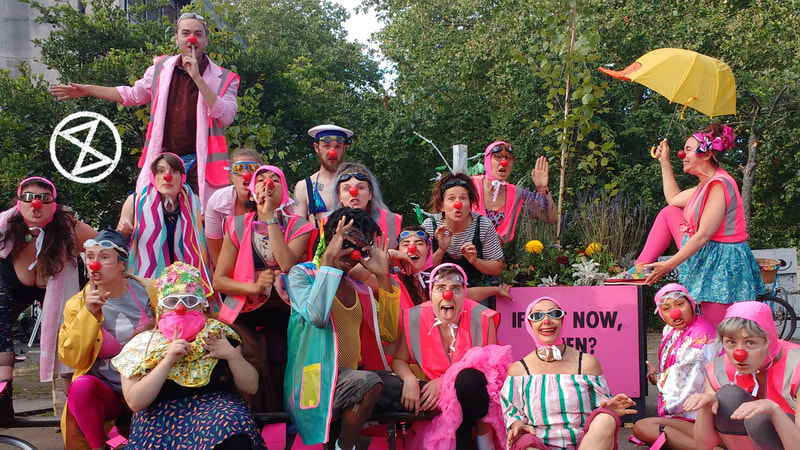
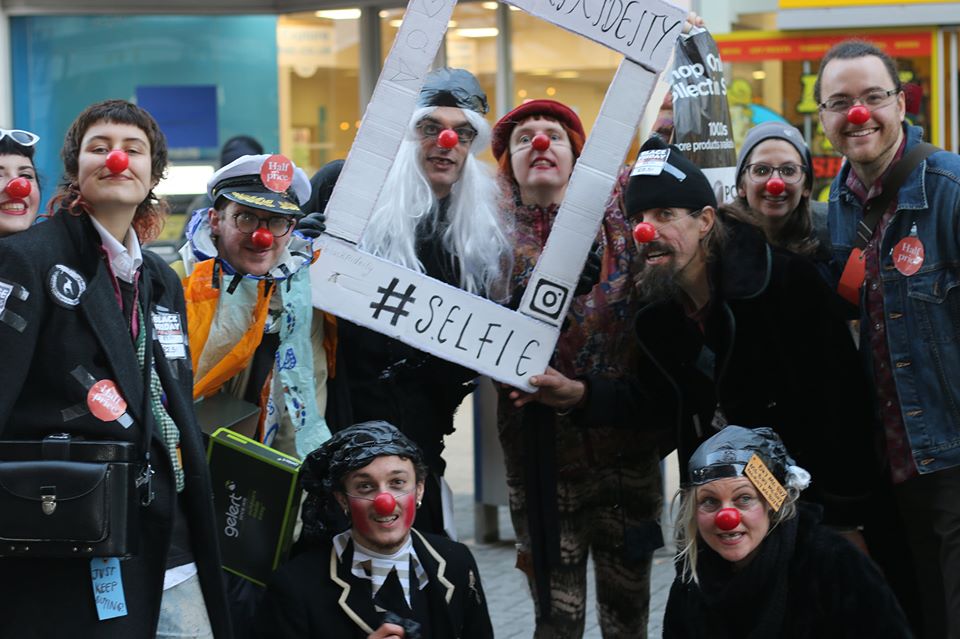
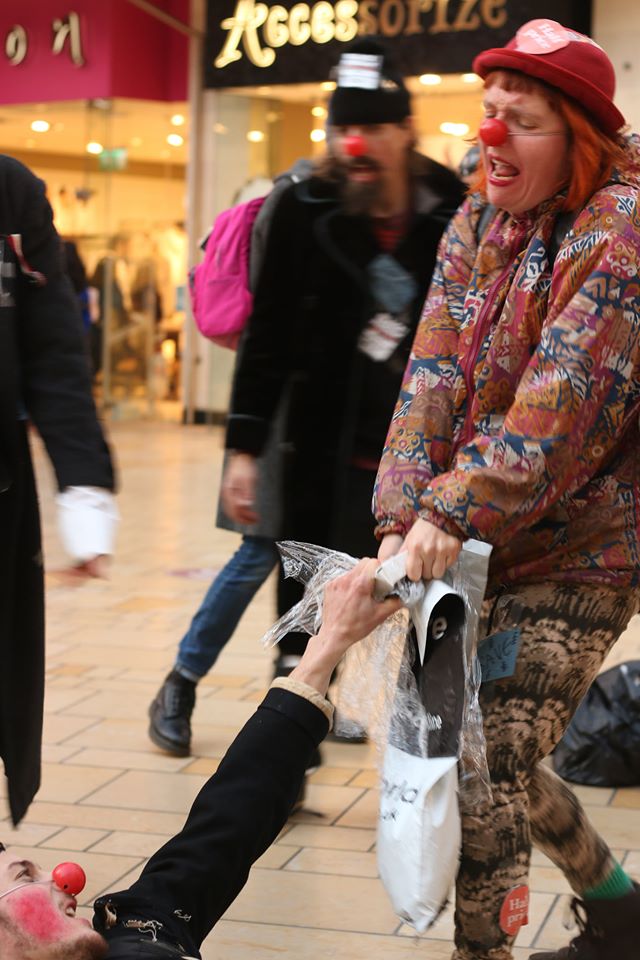
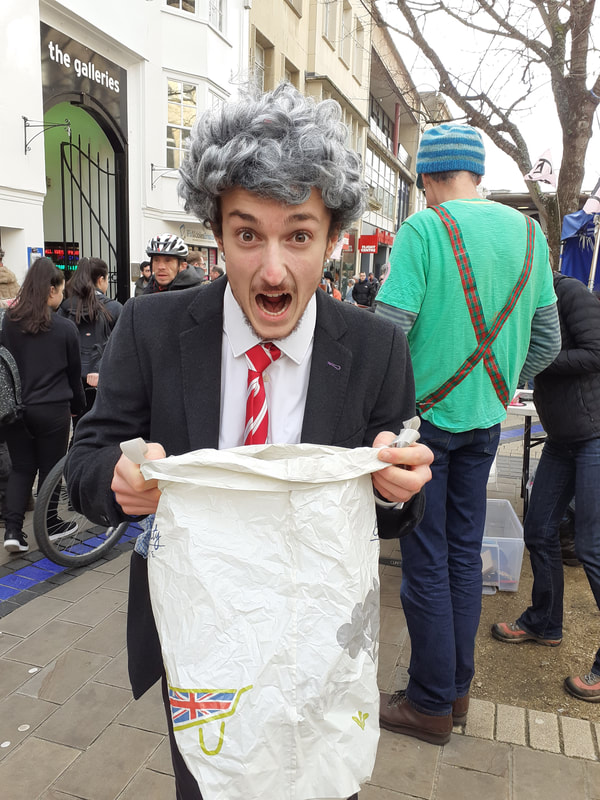
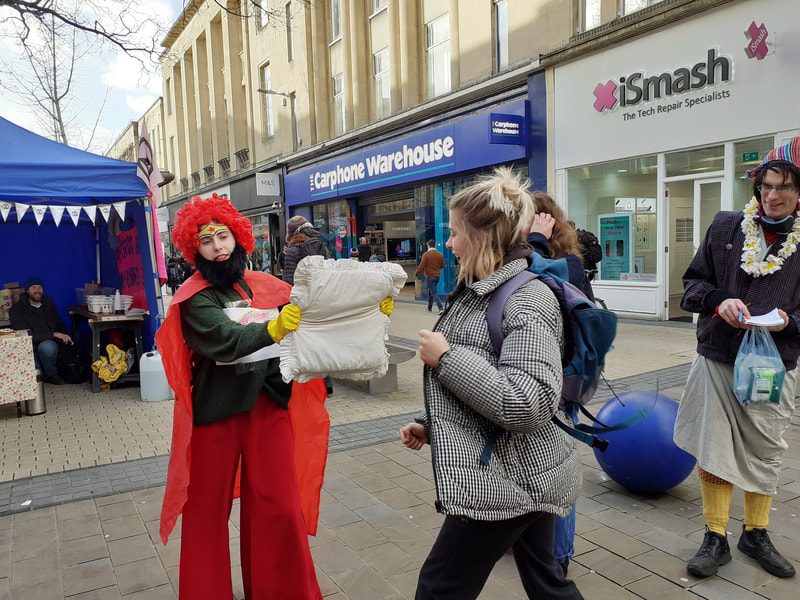
 RSS Feed
RSS Feed
